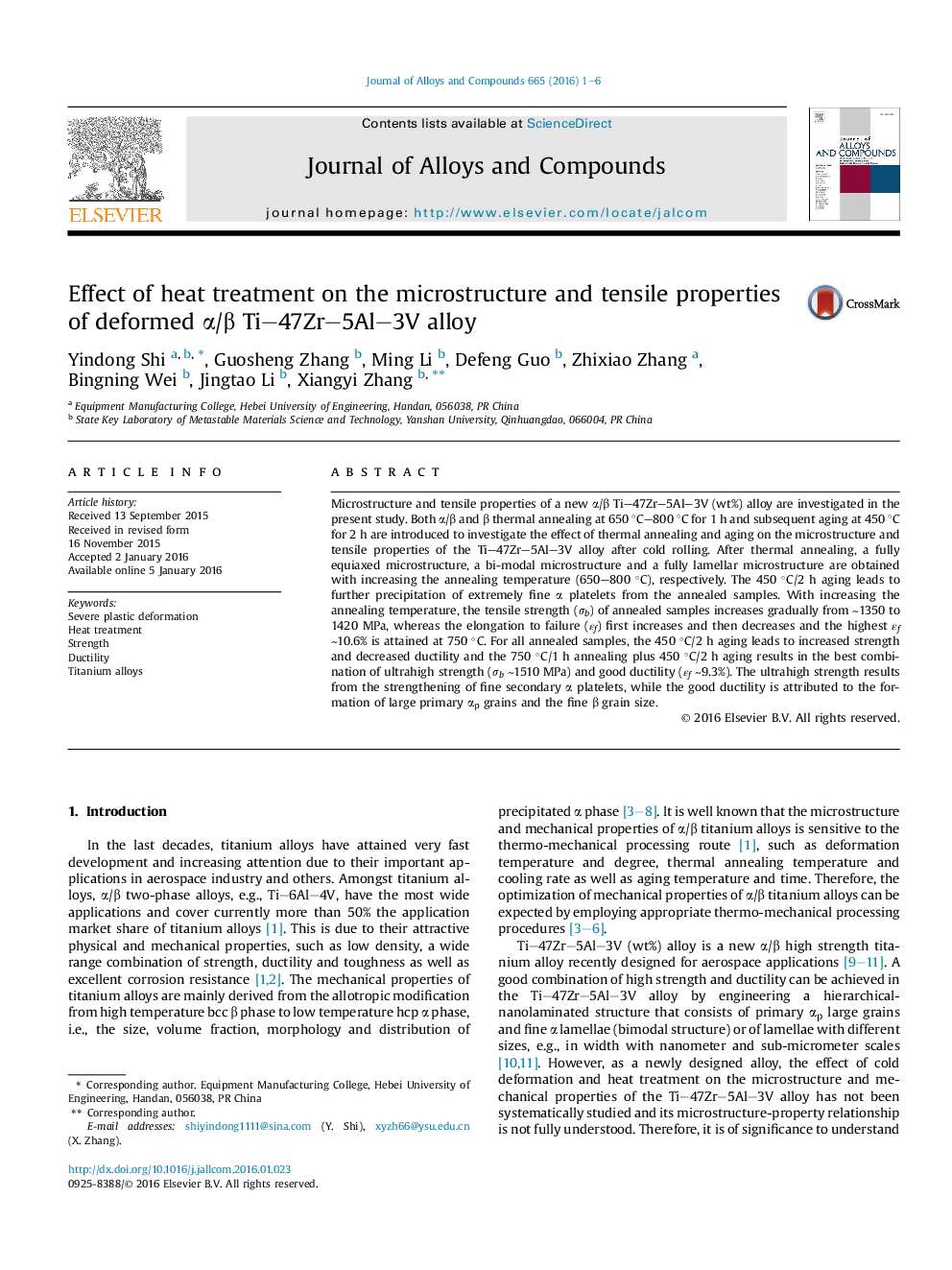| کد مقاله | کد نشریه | سال انتشار | مقاله انگلیسی | نسخه تمام متن |
|---|---|---|---|---|
| 1606798 | 1516228 | 2016 | 6 صفحه PDF | دانلود رایگان |

• Microstructure and tensile properties of Ti–47Zr–5Al–3V are studied.
• The alloy is processed by combinations of deformation and heat treatments.
• The optimum heat treatment parameters are obtained under property evaluation.
• An exceptional combination of ultrahigh strength and good ductility is achieved.
Microstructure and tensile properties of a new α/β Ti–47Zr–5Al–3V (wt%) alloy are investigated in the present study. Both α/β and β thermal annealing at 650 °C–800 °C for 1 h and subsequent aging at 450 °C for 2 h are introduced to investigate the effect of thermal annealing and aging on the microstructure and tensile properties of the Ti–47Zr–5Al–3V alloy after cold rolling. After thermal annealing, a fully equiaxed microstructure, a bi-modal microstructure and a fully lamellar microstructure are obtained with increasing the annealing temperature (650–800 °C), respectively. The 450 °C/2 h aging leads to further precipitation of extremely fine α platelets from the annealed samples. With increasing the annealing temperature, the tensile strength (σb) of annealed samples increases gradually from ∼1350 to 1420 MPa, whereas the elongation to failure (εf) first increases and then decreases and the highest εf ∼10.6% is attained at 750 °C. For all annealed samples, the 450 °C/2 h aging leads to increased strength and decreased ductility and the 750 °C/1 h annealing plus 450 °C/2 h aging results in the best combination of ultrahigh strength (σb ∼1510 MPa) and good ductility (εf ∼9.3%). The ultrahigh strength results from the strengthening of fine secondary α platelets, while the good ductility is attributed to the formation of large primary αp grains and the fine β grain size.
Journal: Journal of Alloys and Compounds - Volume 665, 25 April 2016, Pages 1–6